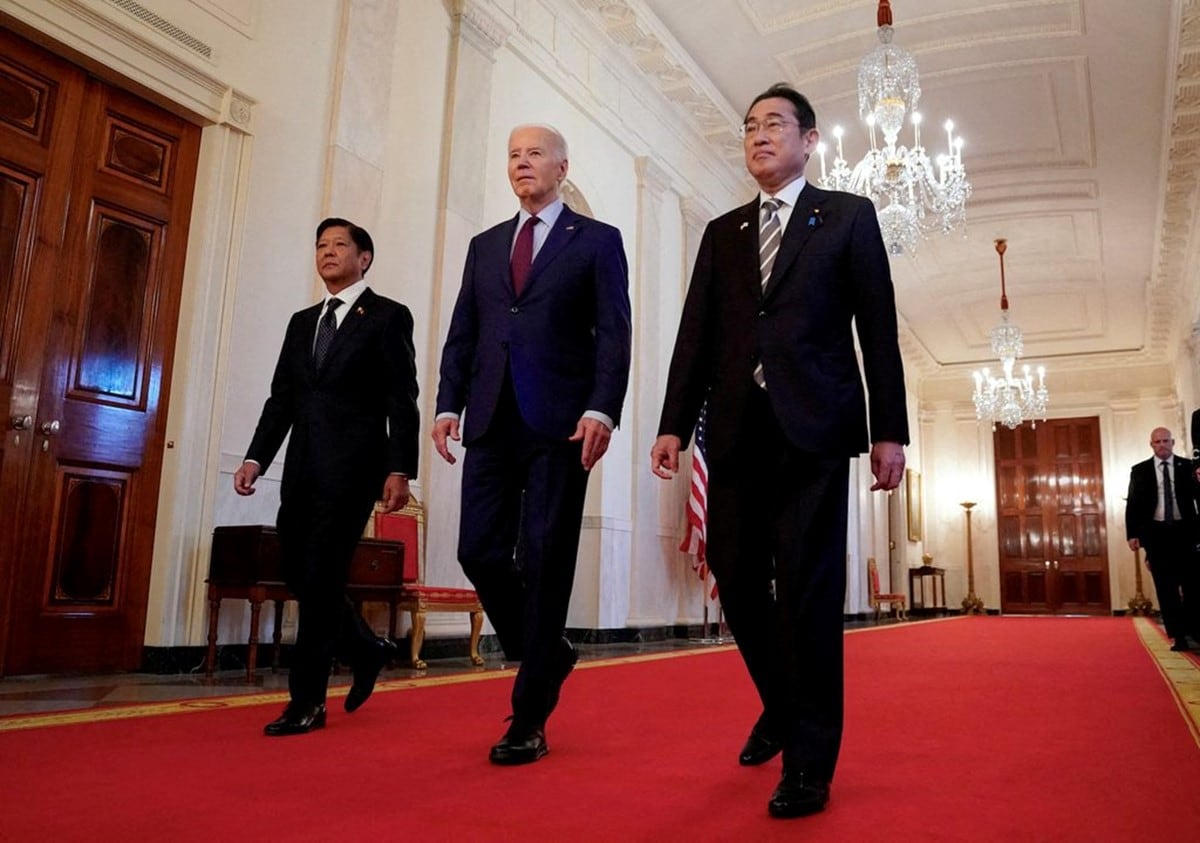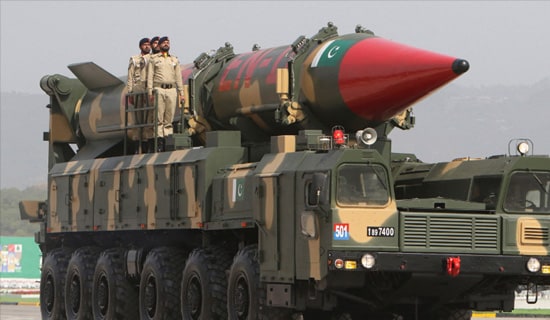On April 12, 2024, Chinese Communist Party (CCP) media outlet China Military Online published an article, titled "How Does China React To US's Shaping Of Minilateral System?"[1] discussing U.S. and Chinese diplomatic maneuvering in East Asia, the Chinese perception of U.S. strategy, the challenges that strategy may face, and how China can adapt to it.
The article was published a day after the April 11 meeting at the White House between President Biden, Japanese Prime Minister Fumio Kishida, and Philippine President Romualdez Marcos Jr.,[2] during which Biden guaranteed that any attack on a Philippine aircraft, vessel, or armed forces in the South China Sea would invoke the Mutual Defense Treaty (MDT) signed in 1951 between the U.S. and the Philippines.[3]

US President Joe Biden escorts Philippine President Ferdinand Marcos Jr. and Japan Prime Minister Fumio Kishida to their trilateral summit at the White House in Washington, U.S., April 11, 2024.
Following is the article:
The U.S. "Has Recognized That Large-Scale Military Blocs Akin To NATO Are Not Applicable In The Region In View Of The Intricate Regional Dynamics"
"US President Joe Biden met with Japanese Prime Minister Fumio Kishida and Philippine President Romualdez Marcos Jr. on April 11, local time, and the three countries intended to build the so-called 'trilateral security relationship' and institutionalize their security cooperation. Some foreign media pointed out that this is the latest layout of the minilateral system implemented by the US in the Asia-Pacific region in recent years.
SUPPORT OUR WORK

"The minilateral system is distinguished from the traditional unilateral, bilateral and multilateral models. Cui Hongjian, a professor at the Academy of Regional and Global Governance at Beijing Foreign Studies University, believes that the promotion of the minilateral system in the Asia-Pacific by the US is primarily targeted at encircling China in terms of strategies and security.
"Cui proposed that the US desires to implement a strategic layout adapted to the situation of Asia-Pacific region as it has recognized that large-scale military blocs akin to NATO are not applicable in the region in view of the intricate regional dynamics. This also represents the US' significant adjustment of its Asia-Pacific policy after Biden came to power. Rather than engaging in direct confrontation with China, the US now seeks to alter and weaken the influence of China in its surrounding regions to secure the basis for its own development."
"The Biggest Advantage Of China In This Respect Is That It Has Much Deeper Historical And Cultural Ties With Neighboring Countries Than The US"
"On April 10, the US local time, Biden and Kishida announced to upgrade their relationship from alliance to global partnership during the summit meeting, which was remarked by the Japanese media as a historic upgrade of their ties since the establishment of their alliance.
"Chen Yang, a guest researcher at the Institute of Japan Studies with Liaoning University, pointed out that this upgrade of the bilateral ties signifies that the US will build more cross-regional small blocs based on their alliance. The so-called 'trilateral security relationship' among the US, Japan and the Philippines is also no exception.
"The prevalence of the minilateral systems will have negative impacts on the Asia-Pacific region. First, the constant shift from development cooperation to military confrontation implies a serious imbalance between development and security at the regional and even global levels going forward. More and more countries may gradually reallocate resources to the military security field under the instigation of the US, which will have repercussions for transnational cooperation, world economy and global development. Second, the move by the US, which serves as the manipulator behind the minilateral system, inadvertently gives rise to numerous small blocs, which will inevitably lead to regional bloc confrontation.
"In this regard, Chen Yang analyzed that the formation of small blocs and 'small yard and high fence' in multiple fields by the US aims to maintain its hegemonic position through trade barriers and technical blockades. This will not only constitute threats to the peace and stability of the Asia-Pacific and even the world but also undermine the stability of the global supply chains and is inconducive to the prosperity and development of the global economy.
"When talking about how to respond to the minilateral strategy of the US for China, Cui Hongjian indicated that the biggest advantage of China in this respect is that it has much deeper historical and cultural ties with neighboring countries than the US. Moreover, greater efforts should be made to make China's principle of amity, sincerity, mutual benefit and inclusiveness in neighborhood policy work better in practice.
"To build a community with a shared future entails not only economic interconnectedness but also shared responsibilities. In dealing with its relations with neighboring countries, China is dedicated to shaping policies that honor the regional culture of the Asia-Pacific and embrace creativity, in a bid to uphold development as the prevailing theme in the region. This embodies both a mission and a challenge for China."
[1] Eng.chinamil.com.cn/OPINIONS_209196/Opinions_209197/16300442.html, April 12, 2024.
[2] Globalnation.inquirer.net/231461/biden-hosts-first-philippines-japan-summit-as-china-looms, April 11, 2024.
[3] Globalnation.inquirer.net/231538/biden-reiterates-any-attack-on-ph-aircraft-ship-in-scs-will-invoke-mdt, April 12, 2024.




